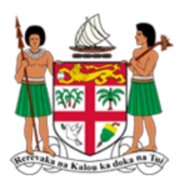Best Native People Lawyers in Fiji
Share your needs with us, get contacted by law firms.
Free. Takes 2 min.
Or refine your search by selecting a city:
List of the best lawyers in Fiji
About Native People Law in Fiji
Native People in Fiji are a unique group with a rich cultural heritage and traditional land rights. The Native Lands Trust Act governs the ownership and management of native land, ensuring that it is held in trust for the benefit of the indigenous Fijian population. Legal issues involving Native People in Fiji often revolve around land disputes, inheritance rights, and cultural preservation.
Why You May Need a Lawyer
You may need a lawyer if you are involved in a land dispute with Native People, need assistance with understanding the Native Lands Trust Act, or require legal representation in matters related to inheritance rights or cultural preservation. A lawyer can help navigate the complex legal system in Fiji and ensure your rights are protected.
Local Laws Overview
The key aspects of local laws relevant to Native People in Fiji include the Native Lands Trust Act, which governs the ownership and management of native land, and the Fijian Constitution, which protects the rights of indigenous Fijians. It is important to understand these laws and how they impact Native People in Fiji.
Frequently Asked Questions
1. What is the Native Lands Trust Act?
The Native Lands Trust Act is a law in Fiji that governs the ownership and management of native land, ensuring it is held in trust for the benefit of the indigenous Fijian population.
2. Can non-Native People own native land in Fiji?
Non-Native People can lease native land in Fiji, but ownership is reserved for indigenous Fijians under the Native Lands Trust Act.
3. What rights do Native People have under Fijian law?
Native People in Fiji have rights to their traditional land, cultural practices, and customs, protected under the Fijian Constitution.
4. How can I resolve a land dispute with Native People?
You may need to seek legal assistance to resolve a land dispute with Native People in Fiji, as these issues can be complex and require legal expertise.
5. Are there organizations that provide legal assistance to Native People in Fiji?
Yes, there are organizations such as the Native Lands Commission that provide legal assistance and support to Native People in Fiji.
6. What is the process for transferring native land in Fiji?
The transfer of native land in Fiji is governed by the Native Lands Trust Act and involves specific procedures that must be followed to ensure compliance with the law.
7. Can I inherit native land in Fiji if I am not a Native Person?
Inheritance rights to native land in Fiji are generally reserved for indigenous Fijians, although there may be exceptions under certain circumstances.
8. What are the penalties for violating the Native Lands Trust Act?
Violations of the Native Lands Trust Act can result in fines, imprisonment, or other legal consequences, so it is important to adhere to the law.
9. How can I learn more about Native People in Fiji and their legal rights?
You can consult with a lawyer specializing in Native People law in Fiji or seek information from organizations that support Native People's rights.
10. What steps should I take if I need legal advice regarding Native People in Fiji?
If you need legal advice regarding Native People in Fiji, the first step is to consult with a qualified lawyer experienced in Native People law. They can provide guidance on your rights and options for legal recourse.
Additional Resources
For more information and support related to Native People in Fiji, you can contact the Native Lands Commission, the Ministry of iTaukei Affairs, or local indigenous rights organizations.
Next Steps
If you require legal assistance regarding Native People in Fiji, it is important to consult with a lawyer who specializes in this area of law. They can help you understand your rights, navigate the legal system, and provide representation in legal proceedings if necessary.
Lawzana helps you find the best lawyers and law firms in Fiji through a curated and pre-screened list of qualified legal professionals. Our platform offers rankings and detailed profiles of attorneys and law firms, allowing you to compare based on practice areas, including Native People, experience, and client feedback.
Each profile includes a description of the firm's areas of practice, client reviews, team members and partners, year of establishment, spoken languages, office locations, contact information, social media presence, and any published articles or resources. Most firms on our platform speak English and are experienced in both local and international legal matters.
Get a quote from top-rated law firms in Fiji — quickly, securely, and without unnecessary hassle.
Disclaimer:
The information provided on this page is for general informational purposes only and does not constitute legal advice. While we strive to ensure the accuracy and relevance of the content, legal information may change over time, and interpretations of the law can vary. You should always consult with a qualified legal professional for advice specific to your situation.
We disclaim all liability for actions taken or not taken based on the content of this page. If you believe any information is incorrect or outdated, please contact us, and we will review and update it where appropriate.
Browse native people law firms by city in Fiji
Refine your search by selecting a city.











